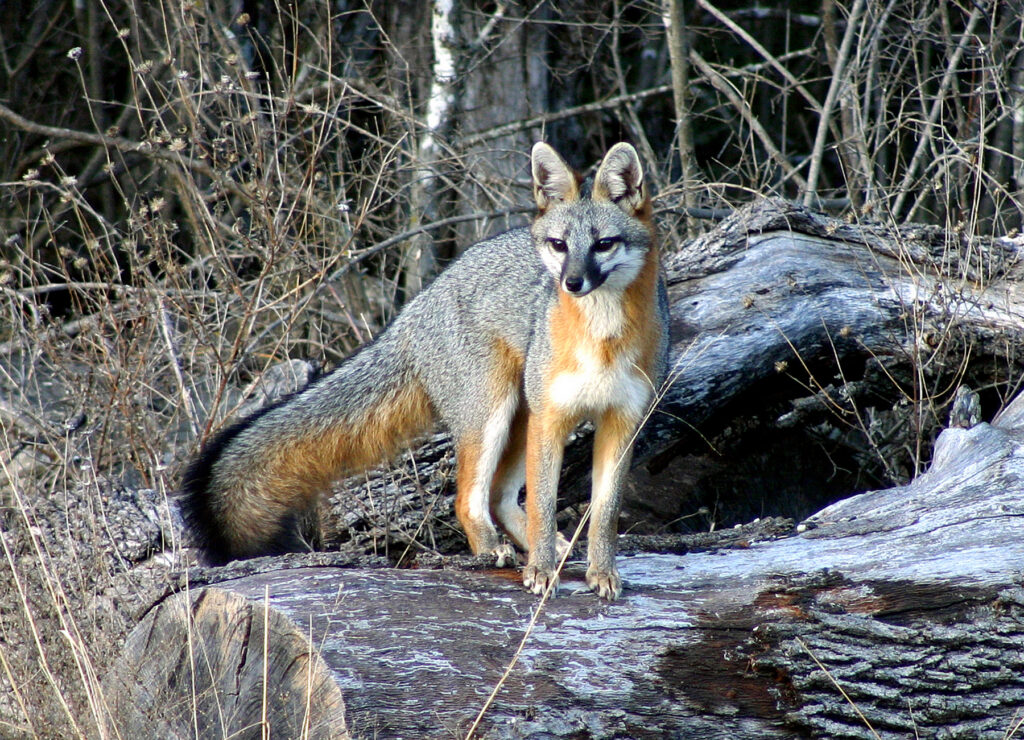The most common species of fox here in Tennessee is the gray fox. Because of its mellow and pale color, many people often confuse gray foxes with coyotes. In fact, if you have been concerned about a coyote presence around your property, you may actually be spotting gray foxes. Now this doesn’t mean that you should turn the other cheek; gray foxes can quickly become a nuisance, especially because of their potent urine and excessive marking behaviors. Furthermore, foxes like to dig up yards and gardens, and can even pass along infectious diseases and parasites to dogs and cats.
Continue reading to learn some interesting facts about gray foxes in Tennessee, including how to get rid foxes when they start to become a threat to your property.

Top Facts About Foxes
Foxes are Related to Dogs
Foxes are part of the part of the Canidae family, which means they are distantly related to canines. But no, you do not want to make a stray fox your pet, as they are nothing like dogs. In fact, it is best to admire foxes in nature from far away, and to do your best to protect your property from nuisance fox activity.
Foxes are Omnivorous
Foxes are omnivores, which means they eat both plant material, like fruits and vegetables, as well as meat, like bugs, grubs, small and Fabians, small birds, rodents, and if available, even crayfish. When it comes to nuisance fox activity, this is a downfall because they will basically pillage your entire property for whatever grub they can find, whether that comes from your trash cans or your garden. To make matters worse, a single fox can eat 1 to 2 pounds of food on a daily basis, so you can rest assured that wandering fox is a hungry fox.
Not All Foxes are TRUE Foxes
There are 37 species of foxes in the world, but not all of them are considered true foxes. Of the 37 species, only 12 are categorized as a true fox species because they are part of the genus vulpes and Canidae family. The remaining 25 species of foxes are sub-species to these true fox species. The true fox species are the Red Fox, Arctic Fox, Bengal Fox, Blanford’s Fox, Cape Fox, Corsac Fox, Fennec Fox, Kit Fox, Pale Fox, Rüppell’s Fox, Swift Fox, and Tibetan Sand Fox.
Foxes are Covered in Whiskers
Most animals with whiskers grow them on their face, but foxes are special. They have whiskers on their face and their legs! There whiskers are important because they essentially work like a built-in navigation system or GPS. They help the fox remain alert to predators, hunt for prey, and find their way around their territories.
Foxes Can Climb Trees
Although we mentioned earlier, foxes are distantly related to dogs. But interestingly enough, foxes are quite similar to felines in terms of their climbing abilities. Not many people are aware that foxes can climb trees, which is why they are sometimes found on top of low level roofs and similar structures.
Foxes are Really Fast Runners
A fox can achieve running speeds of up to 45 miles an hour! That’s as fast as a car driving at regular roadway speeds! For gray foxes specifically, they can sprint up to 42 miles an hour, making them one of the faster fox species in the world. Take the red Fox for instance, which can achieve running speeds of up to 30 miles an hour.
Are you dealing with a nuisance fox problem on your property and need to get rid of foxes fast? Contact Smoky Wildlife Control at 615-610-0962 for prompt and professional fox removal in Nashville, Tennessee and its surrounding regions. We serve commercial clients, too.
You Should Also Like:
How to Keep Chipmunks Out of the Garden
FAQS About Animal Damages and Clean Up
The Top 4 Methods to Get Rid of Raccoons


